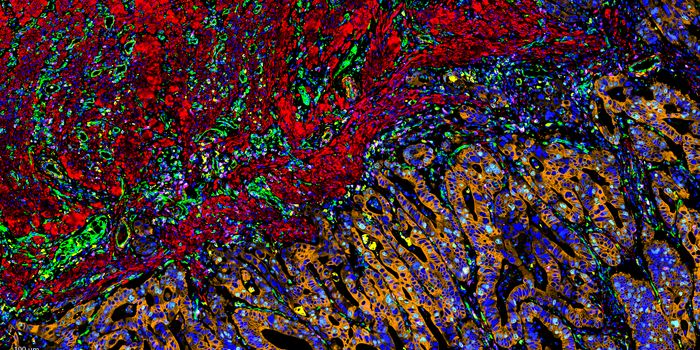Gut fungi linked to pancreatic cancer
In a recent paper published in Nature paper, researchers from the New York University (NYU) School of Medicine in NYC report that gut fungi may be linked to pancreatic cancer. The study was conducted in mice and humans with pancreatic cancer and provides hope for developments in future treatments for patients with pancreatic cancer.
"While past studies from our group have shown that bacteria travel from the gut to the pancreas," says co-senior study author Dr. George Miller, MD, "our new study is the first to confirm that fungi, too, make that trip and that related fungal population changes promote tumor inception and growth."
In conducting the study, Dr. Miller and his fellow researchers analyzed stool samples from mice with and without pancreatic ductal adenocarcinoma, or PDA, the most common type of pancreatic cancer. By putting fluorescent proteins onto the fungi, they were able to monitor the changes in the fungal populations over 30 weeks, as well as track their movement from the intestines to the pancreas.
From this analysis, they determined that in both mice and human tissues with pancreatic cancer, the population sizes and compositions of fungi was different than that of those without pancreatic cancer. The fungi that were observed to have the largest population size in cancerous pancreatic tissues were those in the species belonging to the genus Malassezia. They also observed a less significant increase in fungal species such as those in Parastagonospora, Saccharomyces, and Septoriella.
"We have long known that Malassezia fungi — generally found on the skin and scalp — are responsible for dandruff and some forms of eczema, but recent studies have also linked them to skin and colorectal cancer," says co-senior study author Deepak Saxena, Ph.D., a professor in the College of Dentistry at NYU. "Our new findings add to evidence that Malassezia is abundant in pancreatic tumors as well."
The hope that stems from this discovery comes from the success that antifungal drug treatments had on combating pancreatic cancer. According to the study, treating the diseased mice with a strong antifungal drug called amphotericin B reduced tumor weight by 20–40%. In addition, explains Medical News Today, “The treatment also reduced ductal dysplasia, an early stage in the development of pancreatic cancer, by 20–30% and antifungal treatment also boosted the anticancer power of gemcitabine, a standard chemotherapy drug, by 15–25%.”
This could mean big news for future pancreatic cancer treatment. Pancreatic cancer one of the 10 most common cancers in both males and females in the United States, according to the CDC, and because it is difficult to detect, people are often diagnosed when it is already in an advanced stage. In the US alone, 45,750 are expected to die of the disease this year.
Sources: Nature, Medical News Today









